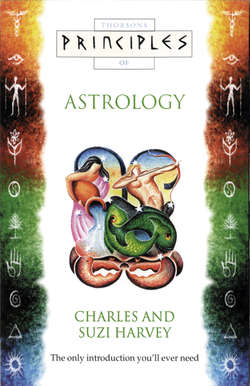Читать книгу Astrology: The only introduction you’ll ever need - Charles Harvey - Страница 9
EARLY ORIGINS – ORDER OUT OF CHAOS
ОглавлениеThe early history of astrology can be only a matter of conjecture. What we do know is that the very earliest records in most cultures and civilizations reveal an essentially astrological world-view. Around 7,500 BCE in Europe, reindeer antlers were being used to note the phases of the moon, whilst the development of writing in Mesopotamia around 3,500 BCE was initially primarily concerned with recording celestial phenomena and their significance. Likewise, all major ancient buildings, such as the Ziggurats of Mesopotamia, the Egyptian and Mayan Pyramids, and Neolithic circles like Stonehenge, seem to have been constructed to align society below with the heavens above.
As early humankind came to consciousness, what became apparent amongst the seeming arbitrariness of life was the regularity of the cycles of day and night, of the waxing and waning of the moon and the movements of the planets across the star-studded sky. It was seen that these regular and predictable cycles of heaven could be related to natural phenomena such as the recurring seasons, the flooding of rivers, outbreaks of disease and years of feast and famine. Likewise the birth of distinct types of people and different kinds of destiny were observed to correspond with particular patterns of the planets.
Astrology appears to have emerged independently in different cultures around the world. Whilst some of these astrologies certainly cross-fertilized one another, each seems to have had the same basic insight about the intimate relationship between above and below. Likewise the essential significance of the planets and stars is very similar in different traditions. Mars is always associated with fire, anger and war, whilst Venus is seen to be an essentially beneficent creature of beauty.
The earliest written records of astrology are found in Mesopotamia where celestial events such as eclipses and the conjunction of planets were observed to be omens of coming events. The discovery of the cycle of the seasons and the fact that different times were good for different kinds of activities may well have encouraged pastoral settlements. It certainly enhanced the efficiency of agriculture in Egypt as the rising of certain stars just before the Sun could be used to time the flooding of the Nile.
